Description
ABSTRACT
Enforcement of Guarantees and Indemnities: Problems Arising
Kolawole Mayomi*
Contractual default is a serious problem. Since contracts are founded upon agreed terms, non-performance of agreed obligations frustrates the realisation of the parties’ commercial expectations and may result in protracted and uncertain litigation. In addressing default risks, the beneficiary of a contractual obligation may insist that the contract must be supported by a collateral guarantee or indemnity. The beneficiary considers the guarantee to be an alternative and effective recourse for satisfaction in a stated event of default. However, like any other contract, a guarantor’s promise may, in certain circumstances, be lawfully avoided; leaving the beneficiary with a realisation that the vaunted security is a worthless piece of paper. This paper provides an in-depth analysis of the law governing to the enforcement of guarantee contracts, and explains the scope of liability that attach to different forms of guarantee contracts. The paper also provides painstaking guidance on the issues and pitfalls that arise in the difficult task of enforcing a guarantor’s promise.
INTRODUCTION
The enforcement of a surety’s bond conjures up a medieval image of usury and of Shylock rubbing his hands at the prospect of his entitlement to a pound of Antonio’s flesh, only to have his hopes dashed on being told by Judge Portia that he may indeed have that flesh as provided, but the terms of the guarantee are so limited and do not extend to a right to spill a drop of blood.1 Whilst we may chuckle at this story, the difficulties that surround the enforcement of guarantees still holds true today, as it was in Portia’s court. Moreover, the terminology used in some present day guarantees would not have been out of place in Antonio’s guarantee issued some 400 years ago!
“Guarantee” is a generic word which embraces surety undertakings issued by a third party ( the guarantor ) on behalf of a contract obligor ( the principal’), in favour of the contract obligee ( the creditor’) to secure an underlying contractual obligation2 against an identified risk. The guarantor’s obligations are usually, but not exclusively, created by a collateral guarantee contract, and may give rise to primary (‘indemnity’) or secondary (‘guarantee’) liability obligations, depending on the context in which the undertaking was issued, and the proper construction of the guarantor’s obligations.
The enforcement of a guarantor’s undertaking is not an easy task. Upon the incidence of default, the guarantor becomes liable to fulfil the principal obligations. In many instances, the guarantor refuses to fulfil this obligation and may even file a lawsuit to nullify the guarantee contract. Section 1 of this paper provides an overview of the utility of guarantee contracts as a risk-mitigation tool. Section 2 discusses the peculiar nature of the obligations engaged by guarantees, on the one hand; and indemnities, on the other hand. Section 3 examines the process for the enforcement of guarantor obligations in Nigeria, whilst Section 4 provides the conclusion and recommendations.
* Partner (Dispute Resolution), S. P. A. Ajibade & Co., Lagos. He is noted for his expertise in resolving complex claims arising from construction and infrastructural projects and, international trade finance.
- A scenario from William Shakespeare’s classic drama: The Merchant of Venice (Geddes & Grossert Edition, Gresham Publishers 2013) Act 4 Scene 1, Lines 305-310.
- The obligations that is sought to be covered by a guarantee may be other than a monetary debt. It extends to the risk of non-delivery of goods, or defective delivery, or other cases of non-performance of agreed terms.

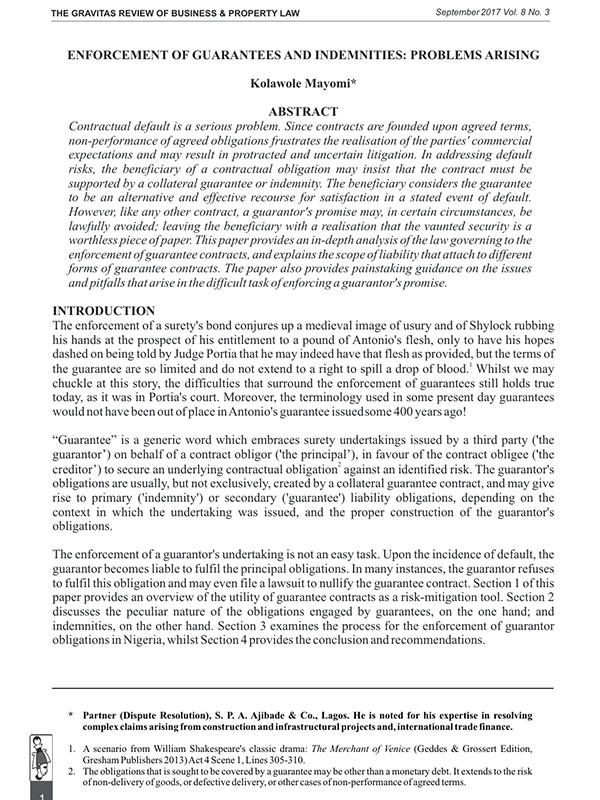
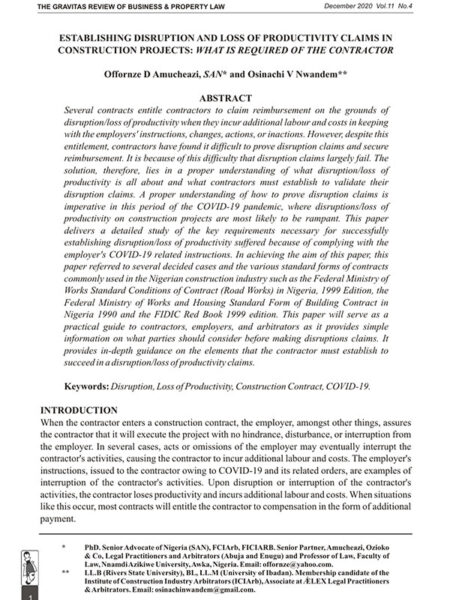
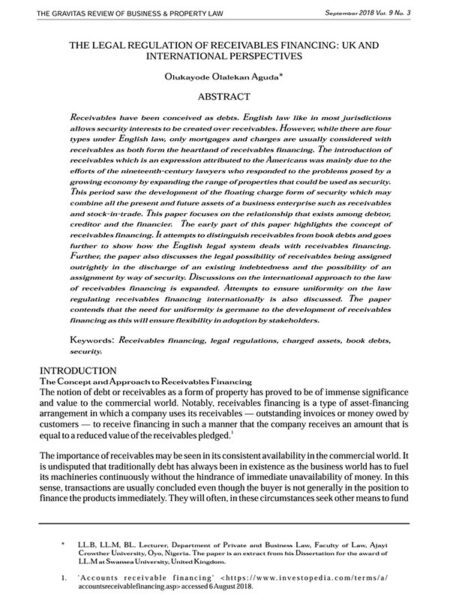
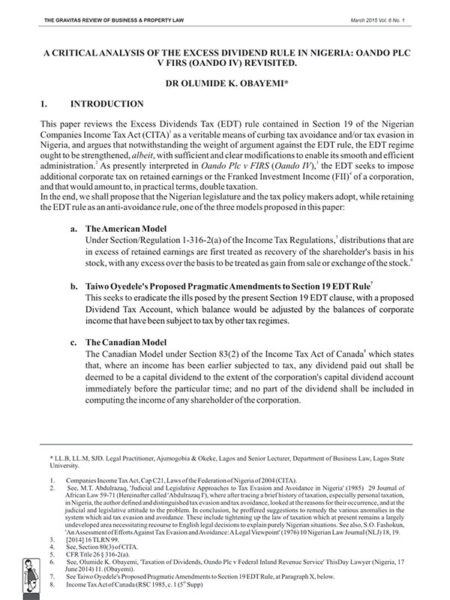
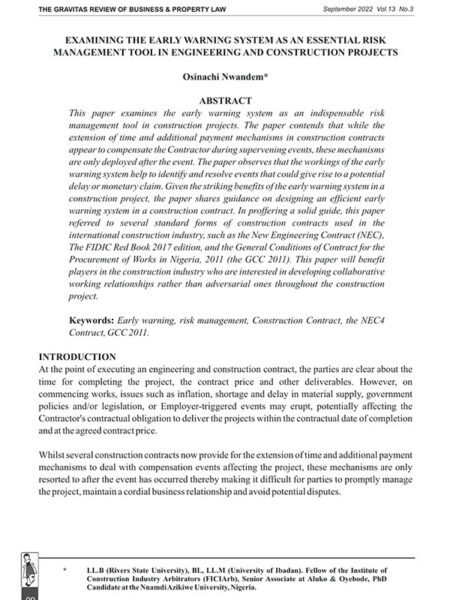


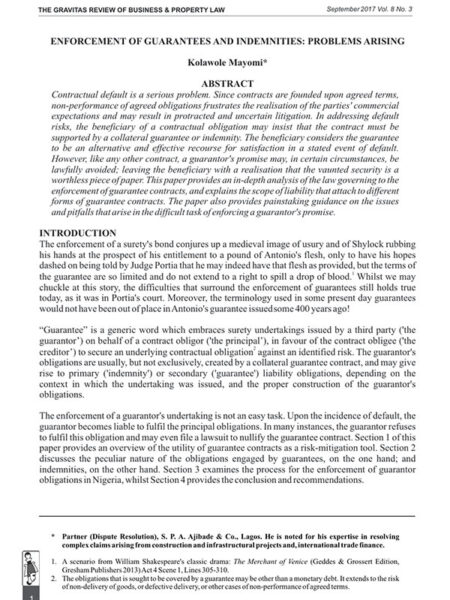
Reviews
There are no reviews yet.